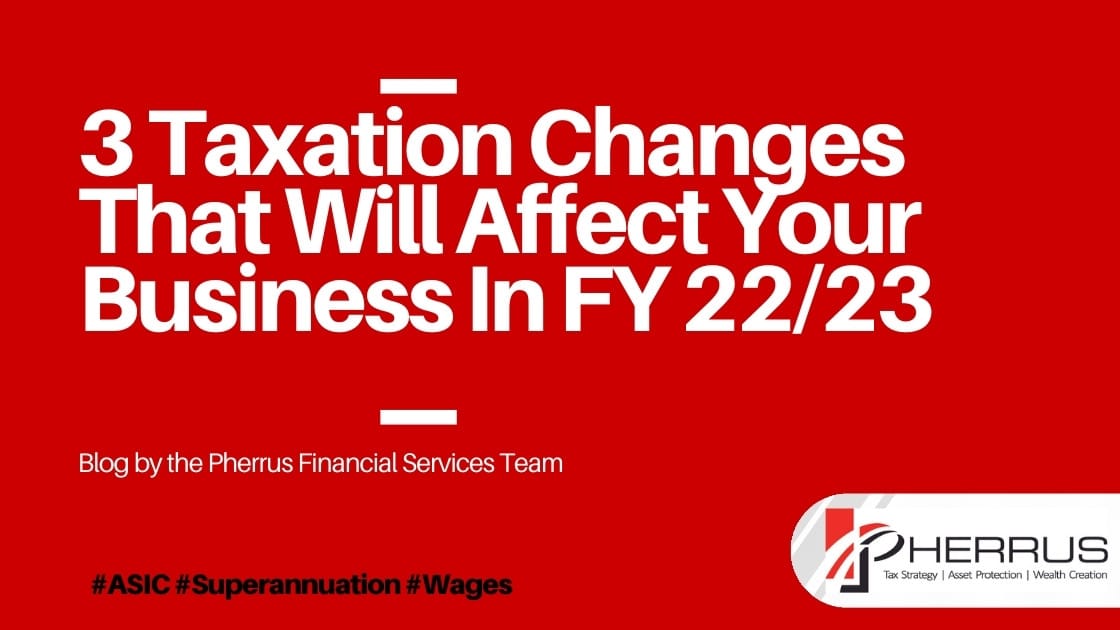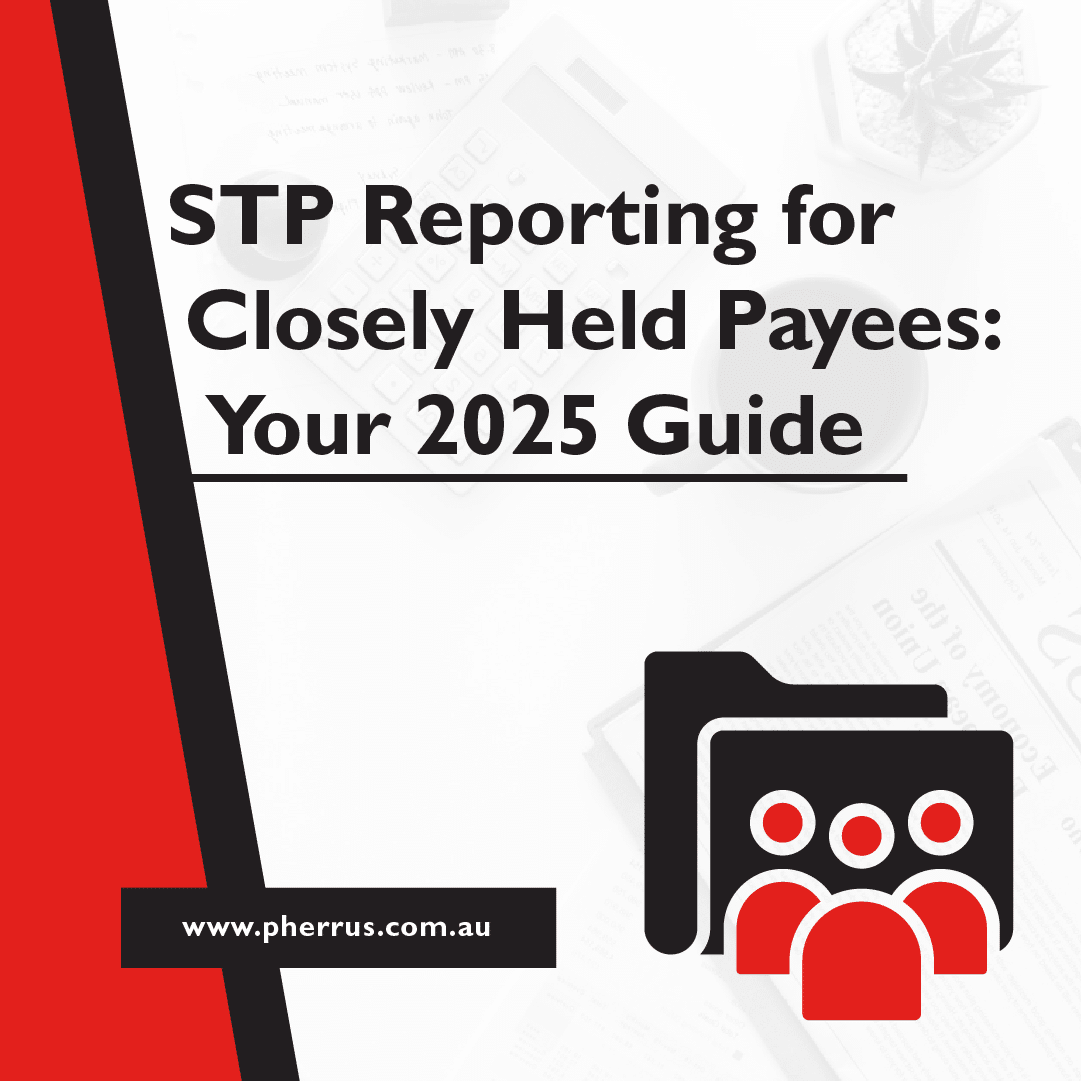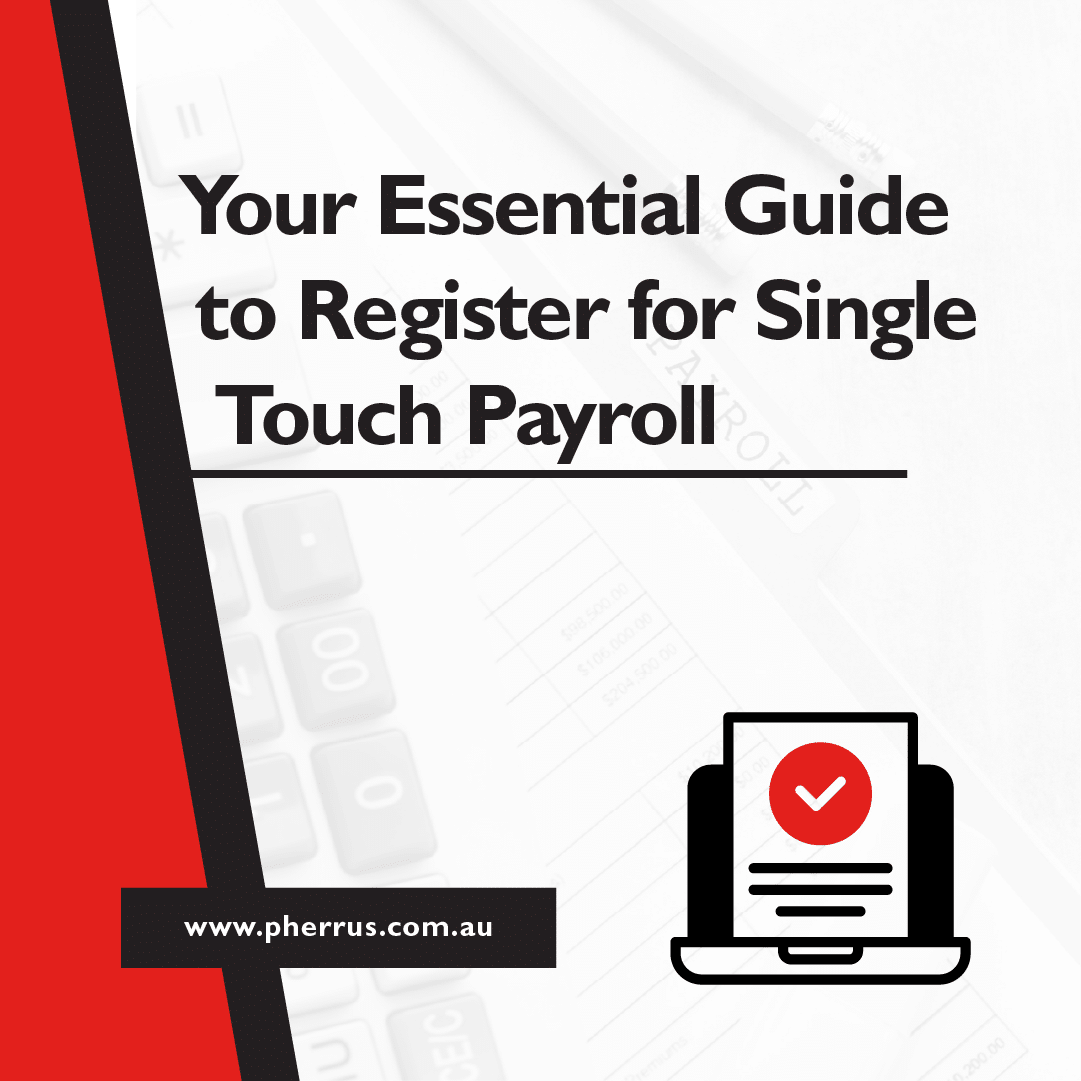With June 30th fast approaching, small businesses around Australia are busily ensuring their tax obligations are met.
However, in the rush to meet the June 30 deadline, it can be difficult to keep track of the changes coming into effect on July 1st.
The changes include increases to the national minimum wage, ASIC fees and the monthly superannuation threshold.
Find out how each of these tax changes are going to affect your small business:
ASIC Fee increase from July 1st
In the March 2022 quarter, the Consumer Price Index (CPI) increased. As a result, various ASIC fees will increase annually from July 1st, 2022.
Take a look at the fees incurred and how much they will increase by:
Company fees
The points below list some of the most frequently lodged company fees:
- Company fees | July 1st, 2021 | July 1st, 2022
- Registering an Australian company | $512 | $538
- Reserving company name | $52 | $55
- Late payment fee (up to 1 month) | $83 | $87
- Late payment fee (over 1 month) | $344 | $362
- Application for voluntary deregistration | $42 | $44
- Annual proprietary company review fee | $276 | $290
- Annual public company review fee | $1,281 | $1,344
Annual review fees
If you’re a company owner, your annual review date corresponds with your registration date.
Details of the review fees which apply to various company types:
- Company registration | July 1st, 2021 | July 1st, 2022
- Public companies | $9,815 | $10,000
- Proprietary companies | $2,043 | $2,147
- Special purpose (propriety) company | $387 | $407
- Special purpose company (public) | $383 | $402
- Registered scheme fund | $9,815 | $10,000
Upfront payment of review fees
You may choose to pay the fee(s) (specified above) in advance, as follows:
- Company registration | July 1st, 2021 | July 1st, 2022
- Public companies | $9,815 | $10,000
- Proprietary companies | $2,043 | $2,147
- Special purpose (propriety) company | $387 | $407
- Special purpose company (public) | $383 | $402
- Registered scheme fund | $9,815 | $10,000
Late payment fees
All annual review fees must be paid within two months of the review date (upfront fees are excluded):
- Delay length | July 1st, 2021 | July 1st, 2022
- 1 month late | $83 | $87
- After 1 month late | $344 | $362
Late Lodgement fees
If changes are made, the accompanying documents must be lodged within the prescribed timeframe:
- Delay length | July 1st, 2021 | July 1st, 2022
- 1 month late | $83 | $87
- After 1 month late | $344 | $362
Late annual review fee
Any changes made to your annual statement must be submitted within 28 days of the statement being issued:
- Delay length | July 1st, 2021 | July 1st, 2022
- 1 month late | $83 | $87
- After 1 month late| $344 | $362
Minimum Wage increase from July 1st
Following the annual wage review, the Fair Work Commission (FWC) has made two key announcements:
• The National Minimum Wage has been increased by 5.2% (i.e. $40 per week)
• Award Minimum Wages will be increased by 4.6%. This is based on a 38-hour work week and subject to a minimum increase of award classification of $40 per week.
What can you do?
The FWC is issuing a determination of how their decision impacts awards.
The pay rates for each award will be updated.
To find information relevant to each award, simply check the Fair Work Ombudsman website.
What is the National Minimum Wage increase and who gets it?
Some employees are not covered by an award or a registered agreement.
These employees will receive the minimum wage.
From July 1st, 2022, the national minimum wage increases by $40 per week.
This equates to a 5.2% rise.
As such, the new National Minimum Wage is $21.38 per hour, or $812.60 per week.
Award minimum wage increase
The majority of employees are covered by an award.
This is a legal document outlining the conditions and minimum pay rates of employment.
The FWC recently announced minimum award wages will increase by 4.6% from July 1st.
This increase is subject to a minimum increase of $40 each week (i.e. based on a 38-hour work week for full-time employees).
As such, minimum award wages above $869.60 per week will receive a 4.6% increase per week.
Award wages below $869.60 will receive a $40 per week increase.
How are registered agreements affected?
If employees are covered by a registered agreement, they may receive a minimum wage increase.
This is because the base pay rate cannot be lower than the base pay rate of the relevant award.
So, if employees are paid weekly on Mondays, for instance, the increase applies from July 4th, 2022.
How are awards affected?
If they’re covered by an award, the increase will occur in two stages.
Most employees will notice an increase in their first pay starting July 1st, 2022.
For the hospitality, tourism and aviation industries, the increase will take effect from October 1st, 2022.
Superannuation changes from July 1st
Along with the minimum wage increase, there are several changes to superannuation.
These include:
• The $450 super guarantee threshold is removed, which means most employees are eligible for the SG, regardless of how much they earn each month.
• The Super Guarantee rate has increased from 10% to 10.5%.
Super Rates increase and no more minimum of $450 income
The term Superannuation Guarantee (SG) determines the percentage of earnings your employer must contribute to an employee’s super.
Below are the Superannuation Guarantee and recent changes to the policy explained:
What is the superannuation guarantee?
Superannuation Guarantee (SG) is the most common contribution placed on an employee’s account.
Employers are legally required to make this contribution on an employee’s behalf.
SG is part of the remuneration package they receive as an employee and is a percentage of their wages or gross salary.
This percentage is set by the Australian Government and can change over time.
Are you eligible for SG contributions?
From July 1st, 2022, employers are legally required to make quarterly SG contributions to employees’ super funds.
Full-time, part-time and casual employees are eligible.
These contributions must be made regardless of an employee’s salary.
In the 2021 Federal Budget, the $450 per month minimum income cap was removed.
Starting July 1st, employees will receive SG contributions regardless of their monthly income.
How is the SG contribution calculated?
In 2022-2023, the SG contribution rate is 10.5% of Ordinary Time Earnings (OTE).
This is paid along with a regular salary.
The OTE comprises of employee earnings, allowances, commissions, bonuses and shift loadings.
However, OTE does not include overtime payments.
SG contributions can be rather complex for those with non-standard employment arrangements.
For employees in this category, we recommend looking at the ATO checklist.
What is the current SG rate?
Currently, an employer is required to contribute 10% of the employee’s total salary to their superannuation account.
On July 1st, 2021, the SG contribution rate rose from 9.5% to 10%. On July 1st, 2022, it will rise to 10.5%.
The contribution rate will continue to rise by 0.5% annually, finally reaching 12% by July 1st, 2025.
The points below displays future SG rates:
- Period | SG Rate
- July 1st, 2022 – June 30th, 2023 | 10.5%
- July 1st, 2023 – June 30th, 2024 | 11%
- July 1st, 2024 – June 30th, 2025 | 11.5%
- July 1st, 2025 – June 30th, 2025 and beyond | 12%
Is there an SG rate contribution limit?
Yes. Currently, the Maximum Super Contribution Base (MSCB) is capped at $60,220 per quarter (or $240,880 per year).
This equates to a maximum SG contribution from the employer of $6,323 per quarter (or $25,292 per year).
Understanding these changes to the tax rules can be difficult, so let us guide your business through it smoothly with personalised advice.
Simply contact us at Pherrus Financial Services today.




